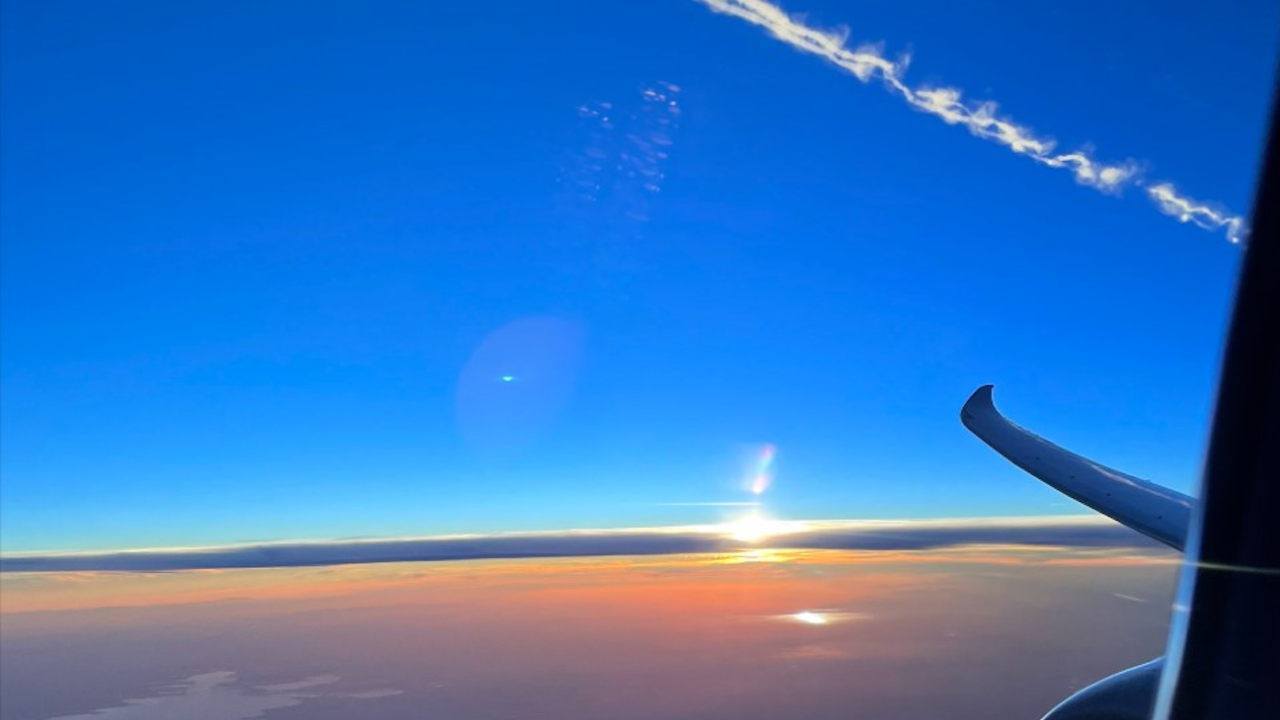On the trail of greener operations
Etihad Airways and UK aerospace company, Satavia, have signed a contract that aims to dramatically reduce atmosphere-warming contrails.

Small percentages: Just 5% of scheduled commercial flights can be responsible for 80%-90% of warming by contrails. Picture: Tim Winter, Satavia.
The partnership follows a successful proof-of-concept trial to expand the scope for contrail management within flight operations.
The contract was signed by Etihad’s head of sustainability and excellence, Mariam Al Qubaisi, and Satavia CEO, Dr Adam Durant, at the World Future Energy Summit in Abu Dhabi.
The new agreement will see Etihad scaling up Satavia’s contrail prevention system across daily flight schedules, accelerating progress towards climate-neutral operations.
Although CO2 emissions from aircraft grab the headlines, it is actually aircraft-generated condensation trails, or contrails, that cause surface warming responsible for up to two-thirds of aviation’s climate impact.
Satavia says that its contrail management system, DecisionX:Netzero, optimises commercial flight plans for greener operations, implementing small routing changes to avoid the formation of persistent warming contrails.
The company has undertaken a considerable amount of advanced weather modelling and has simulated the formation of clouds up to 36 hours into the future.
Once it has this information, it looks at Etihad’s schedules and identifies those flights that will have a warming impact. It can then suggest adjustments to the flights’ altitudes to avoid generating persistent contrails.
Just 5% of scheduled commercial flights can be responsible for 80%-90% of warming by contrails, Durant said. “Most flights make contrails of some description, but they may only last for a few seconds and some can actually have a cooling effect.”
Al Qubaisi added: “In 2022 alone, Satavia technology enabled us to eliminate thousands of tonnes of carbon dioxide equivalent climate impact.”
In addition to enabling contrail management in day-to-day flight operations, Satavia conducts climate impact analysis for conversion into future carbon credits to be shared with Etihad.
“By implementing minimal changes to a small percentage of flights, eco-conscious operators like Etihad can eliminate most of their non-CO2 climate footprint with little to no impact on day-to-day operations,” said Durant. “We’re trying to get the industry to adopt a target to reduce perhaps 50% of those by 2030.”
Stay up to date
Subscribe to the free Times Aerospace newsletter and receive the latest content every week. We'll never share your email address.


